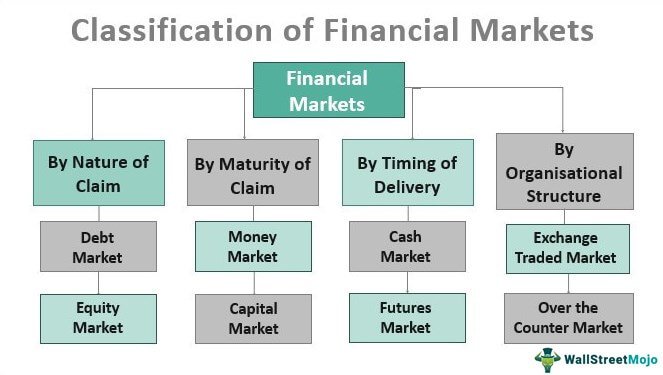Divorce can be a challenging and emotionally draining process, but it’s crucial to protect your finances during this difficult time. So, how can you safeguard your financial future amidst the chaos? Let’s delve into some practical strategies that will help you navigate the murky waters of divorce while keeping your assets secure. From understanding your financial situation to seeking professional advice, we’ll explore effective ways to shield your finances during a divorce. Let’s get started on this journey towards financial stability and peace of mind.
How to Protect Your Finances During a Divorce
Going through a divorce is undoubtedly a challenging and emotional time. Amidst the emotional turmoil, it is crucial to take steps to protect your finances. Divorce can have a significant impact on your financial well-being, so it is essential to be proactive and navigate the process wisely. In this article, we will explore various strategies and tips to help you safeguard your finances during a divorce.
Gather All Financial Documents
Before the divorce proceedings begin, it is crucial to gather all relevant financial documents. This includes bank statements, tax returns, investment account statements, mortgage documents, credit card statements, and any other financial documents that are pertinent to your marriage. Having a complete set of financial records will provide a clear overview of your assets, debts, and income, which will be valuable during negotiations and determining a fair settlement.
Consider creating a comprehensive list or spreadsheet that includes:
- Bank accounts
- Investment accounts
- Real estate properties
- Retirement accounts
- Vehicles
- Debts
- Insurance policies
- Business interests
Hire a Competent Financial Professional
One of the best ways to protect your finances during a divorce is to seek guidance from a competent financial professional. A financial advisor or divorce financial planner can provide valuable insights and help you make informed decisions. They can assist you in analyzing your financial situation, understanding the tax implications of different settlement options, and developing a post-divorce financial plan. Having an expert on your side will ensure you consider all the financial aspects and don’t overlook any critical details.
Understand and Protect Your Credit
Divorce can have a significant impact on your credit score if not managed carefully. Take steps to protect your credit during and after the divorce:
- Obtain a copy of your credit report: Reviewing your credit report will help you identify joint accounts, outstanding debts, and any discrepancies. You can request a free credit report from each of the three major credit bureaus (Equifax, Experian, and TransUnion) annually.
- Close joint accounts: It is crucial to close joint accounts to prevent your former spouse from accumulating additional debt in your name. Contact the creditors and either close the accounts or remove your name from them.
- Establish individual credit: If you don’t have credit in your name, now is the time to establish it. Open a credit card or apply for a small loan to start building your individual credit history.
- Pay bills on time: Ensure that all individual bills are paid on time to maintain a positive credit history. Late or missed payments can negatively impact your credit score.
Update Beneficiary Designations and Estate Planning Documents
Review and update your beneficiary designations and estate planning documents to reflect your new circumstances. After a divorce, you may want to change the beneficiaries on your life insurance policies, retirement accounts, and other investments. Additionally, update your will, power of attorney, and healthcare proxy to ensure your assets and end-of-life wishes align with your new circumstances.
Secure Your Financial Future
Divorce often leads to a redistribution of assets and a change in financial circumstances. To secure your financial future, consider the following:
- Create a budget: Review your new income and expenses to create a realistic budget. Accounting for your changed circumstances will help you make informed financial decisions.
- Build an emergency fund: Having an emergency fund is crucial to navigate unforeseen expenses and maintain financial stability. Aim to save three to six months’ worth of living expenses.
- Reevaluate your financial goals: Divorce may require you to reassess your financial goals and priorities. Take the time to set new goals and develop a plan to achieve them.
- Seek professional advice: Consider consulting a financial advisor to help you navigate your new financial reality. They can assist in creating a long-term financial plan tailored to your specific needs.
Consider Collaborative Divorce or Mediation
Traditional divorces can be costly and contentious. Collaborative divorce or mediation offers an alternative method that can help protect your finances. In both processes, you and your spouse work together with professionals, such as mediators, financial planners, and attorneys, to reach a fair settlement. By avoiding courtroom battles and reducing legal fees, you can preserve your financial resources for your future.
Consult with an Experienced Family Law Attorney
While it’s essential to protect your finances, it is equally critical to protect your legal rights during a divorce. Consulting with an experienced family law attorney will ensure you understand the legal process, your rights, and the potential financial implications. An attorney will guide you through the divorce proceedings, negotiate on your behalf, and help ensure a fair settlement.
In conclusion, navigating a divorce is emotionally challenging, but taking steps to protect your finances is crucial. By gathering all financial documents, seeking professional guidance, understanding and protecting your credit, updating beneficiary designations and estate planning documents, securing your financial future, considering collaborative divorce or mediation, and consulting with an experienced family law attorney, you can mitigate financial risks and safeguard your financial well-being. Remember, putting in the effort to protect your finances during a divorce will set you on the path to a more stable and secure future.
Tips to protect your money and assets in a divorce.
Frequently Asked Questions
Frequently Asked Questions (FAQs)
How can I protect my finances during a divorce?
Divorce can have a significant impact on your finances, but there are steps you can take to protect yourself. Here are some key strategies to consider:
1. What should I do with joint bank accounts?
It is advisable to open separate bank accounts for yourself and close any joint bank accounts. This will help ensure that your individual finances are protected and prevent any potential misuse or withdrawal of funds.
2. How should I handle shared debts?
It is crucial to address shared debts during a divorce. Consider working with your spouse to create a plan for dividing and paying off these debts. If necessary, consult with a financial advisor or attorney to ensure a fair and reasonable arrangement is reached.
3. Should I consider hiring a financial professional?
Engaging a financial professional, such as a divorce financial planner or a certified divorce financial analyst, can provide you with expert guidance and help you make sound financial decisions throughout the divorce process.
4. What steps can I take to protect my credit?
Monitor your credit report regularly to ensure there are no unauthorized accounts or activities. It is also recommended to close joint credit accounts and establish individual lines of credit to safeguard your credit score.
5. How can I safeguard my assets?
Take inventory of your assets, including property, investments, and valuable possessions. If needed, consult with a qualified attorney to help you properly document and protect your assets during the divorce proceedings.
6. Is it important to update my estate planning documents?
Absolutely. Update your will, trust, and beneficiary designations to reflect your current wishes and ensure that your assets are distributed according to your preferences in the event of incapacity or death.
7. What should I know about tax implications?
Inform yourself about the potential tax consequences of your divorce settlement. Consult with a tax professional or accountant to understand how the division of assets, spousal support, and child support may impact your tax situation.
8. How can I protect my retirement savings?
Evaluate and consider the division of retirement accounts and pensions during the divorce process. Consult with a financial advisor to mitigate potential tax penalties and ensure a fair division that aligns with your long-term financial goals.
Final Thoughts
Protecting your finances during a divorce is crucial for securing your financial future. Firstly, gather all necessary financial documents and create a detailed inventory of your assets and debts. Consult a financial advisor to understand the potential long-term impact of the divorce on your finances. Consider getting a prenuptial or postnuptial agreement to safeguard your assets. Open separate bank accounts to maintain financial independence and monitor your credit regularly. Be cautious when dividing assets, ensuring a fair settlement is reached. Lastly, consult with a lawyer specializing in divorce to navigate the legal complexities and protect your finances effectively.


